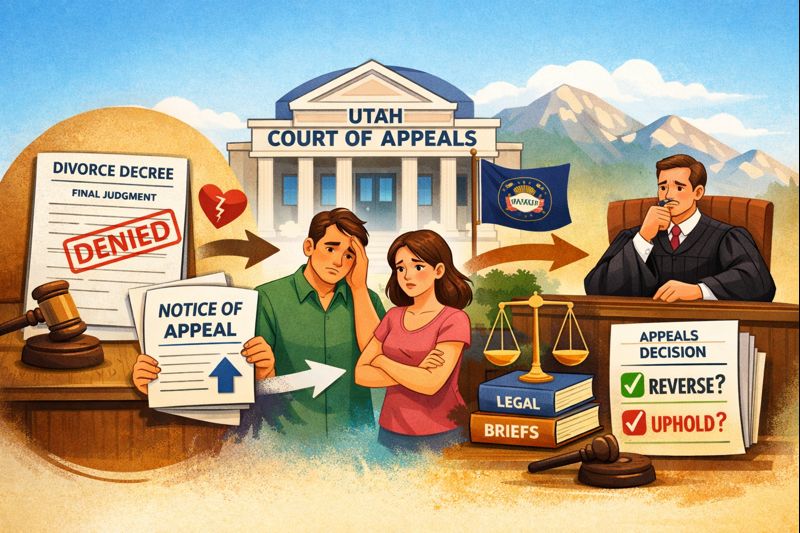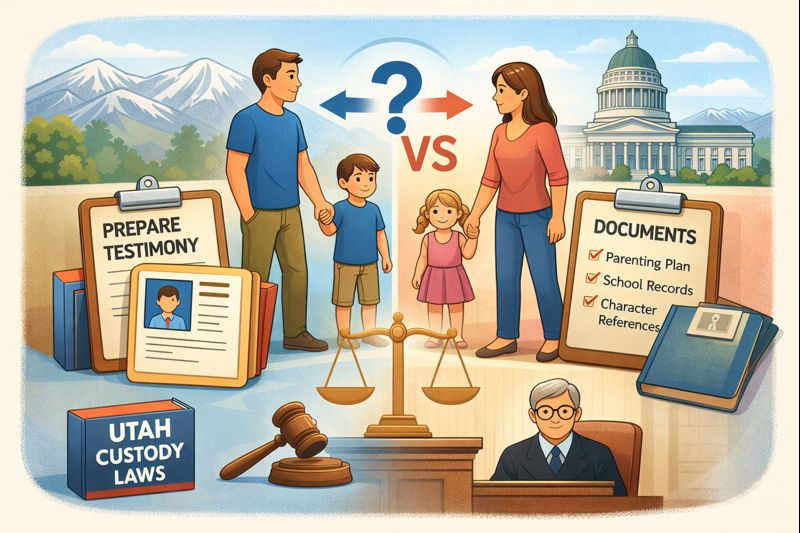Consider the case of Sarah and Michael. They’ve been together for five years and recently decided to move in together into a house they purchased jointly. Sarah has invested a significant amount of her savings into the down payment, while Michael contributes a larger portion of his income towards the mortgage payments. Initially, everything seems harmonious, but over time, differences in financial priorities and responsibilities start to emerge. Sarah feels that she’s bearing the brunt of the financial burden, while Michael argues that he’s contributing equally through his monthly payments. When they decide to part ways, things get complicated. Sarah wants to recoup her initial investment, while Michael feels entitled to a larger share of the property because of his ongoing contributions. Without a cohabitation agreement in place, they’re left grappling with a messy and emotionally taxing legal battle over property division and financial assets.
In contrast, take the example of Emily and David. Before moving in together, they sat down and discussed their financial expectations and concerns. They decided to draft a cohabitation agreement outlining how they would divide their expenses, property, and assets in the event of a breakup. This agreement not only provided them with clarity and peace of mind but also strengthened their relationship by fostering open communication and mutual respect. When they eventually decided to part ways, they were able to separate amicably, following the terms laid out in their cohabitation agreement. Thanks to their proactive approach, they avoided unnecessary conflict, stress, and financial strain, allowing them to maintain a cordial relationship post-breakup.
P.S. – Breaking News: Gibb Law Firm is excited to announce the launch of an advanced new resource dedicated to Civil Litigation! Check out our press release to learn how we aim to streamline legal processes, ensuring that clients receive the most effective and informed representation in their civil cases.
In today’s world, many couples choose to cohabitate before or instead of marriage. While this offers flexibility and a chance to test compatibility, it also presents unique legal challenges. Unlike married couples, unmarried partners don’t automatically share the same legal protections. This is where cohabitation agreements come in.
What is a Cohabitation Agreement?
A cohabitation agreement, also known as a cohabitation contract or a living together agreement, is a legal document outlining the rights and responsibilities of unmarried couples living together. It provides clarity and security in various aspects of their shared life, including:
- Property Ownership: This clarifies ownership of real estate (like a house), vehicles, and other valuable assets acquired during the cohabitation. Imagine an unmarried couple, Sarah and Michael, buying a house together. A cohabitation agreement can specify how much each contributed to the purchase and how ownership would be divided if they were separate.
- Financial Responsibilities: The agreement can detail how expenses like rent, utilities, and groceries will be shared. It can also address how debts incurred during the cohabitation will be handled.
- Arrangements for Children: If the couple has children together, the agreement can outline child custody and support arrangements in case of separation.
Benefits of Having a Cohabitation Agreement
- Clarity and Security: A cohabitation agreement helps prevent misunderstandings and disputes down the line by establishing clear expectations from the outset.
- Fairness: It ensures both partners are treated fairly regarding property division and financial obligations in the event of a separation.
- Peace of Mind: Knowing their rights and responsibilities offers peace of mind and allows couples to focus on building their life together.
Key Considerations for Cohabitation Agreements:
- Written is Best: While some states recognize oral cohabitation agreements, it’s highly advisable to have a written and signed agreement for enforceability. A written document provides a clear record of the couple’s intentions and reduces the risk of misunderstandings later.
- Not a Prenup: Cohabitation agreements are distinct from prenuptial agreements (prenups). Prenups deal specifically with the division of assets and debts in case of divorce, while cohabitation agreements apply to unmarried couples.
- Tailored for the Couple: A cohabitation agreement should be customized to the specific needs and circumstances of the couple. A couple with significant assets or children may require a more complex agreement compared to a couple with minimal shared property.
- Independent Legal Advice: Both partners should seek independent legal advice before signing the agreement. This ensures they understand the legal implications andthat their rights are protected. Gibb Law Firm can guide you in drafting an agreement that reflects your specific situation and complies with state laws.
What a Cohabitation Agreement Doesn't Cover:
- Court Approval for Child Custody: Child custody and support arrangements typically require court approval, even if outlined in the agreement. While the agreement can express the couple’s preferences, the court will ultimately decide what’s in the best interests of the child.
- Limited Rights Compared to Marriage: Cohabitation agreements don’t grant the same legal rights as marriage, such as inheritance rights or medical decision-making authority. Unmarried partners may need to consider additional legal steps, like estate planning documents, to address these areas.
Considering a Cohabitation Agreement?
If you’re planning to cohabitate with your partner, a cohabitation agreement is a wise investment. It promotes open communication, fosters fairness, and provides peace of mind. While it might seem like an uncomfortable conversation initially, it demonstrates a commitment to building a strong and secure foundation for your relationship.
Additional Considerations for Utah Couples
Utah is one of the few states with unique cohabitation laws. Unmarried couples in Utah who have cohabited for a minimum period (currently 180 days) may be considered a “married couple” for certain purposes in the event of separation. This can lead to complex legal issues regarding property division and financial support. Consulting with a family law attorney like Gibb Law Firm in Utah is crucial to understanding your rights and exploring options like cohabitation agreements or registered domestic partnerships (available in some states).
Contact information
Gibb Law Firm
Phone – (801) 725-6035
Address – 610 N. Kays Dr., Suite 109 Kaysville, Utah
Additional resources
https://www.nolo.com/legal-encyclopedia/living-together
https://www.findlaw.com/family/living-together.html
Disclaimer: This blog is for informational purposes only and is not legal advice. Please contact us to discuss the specifics of your cohabitation situation.



